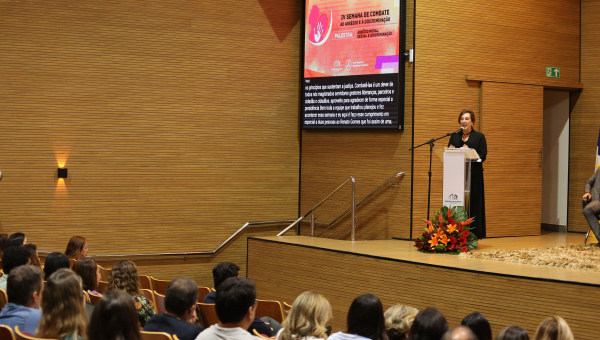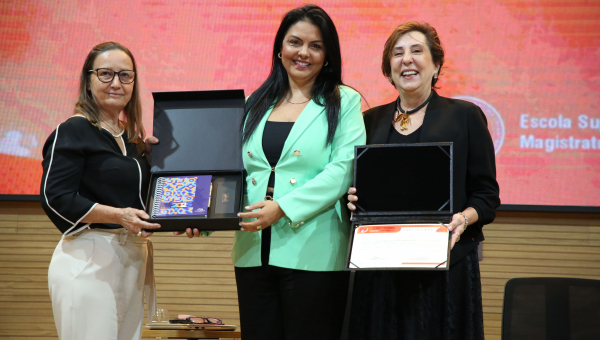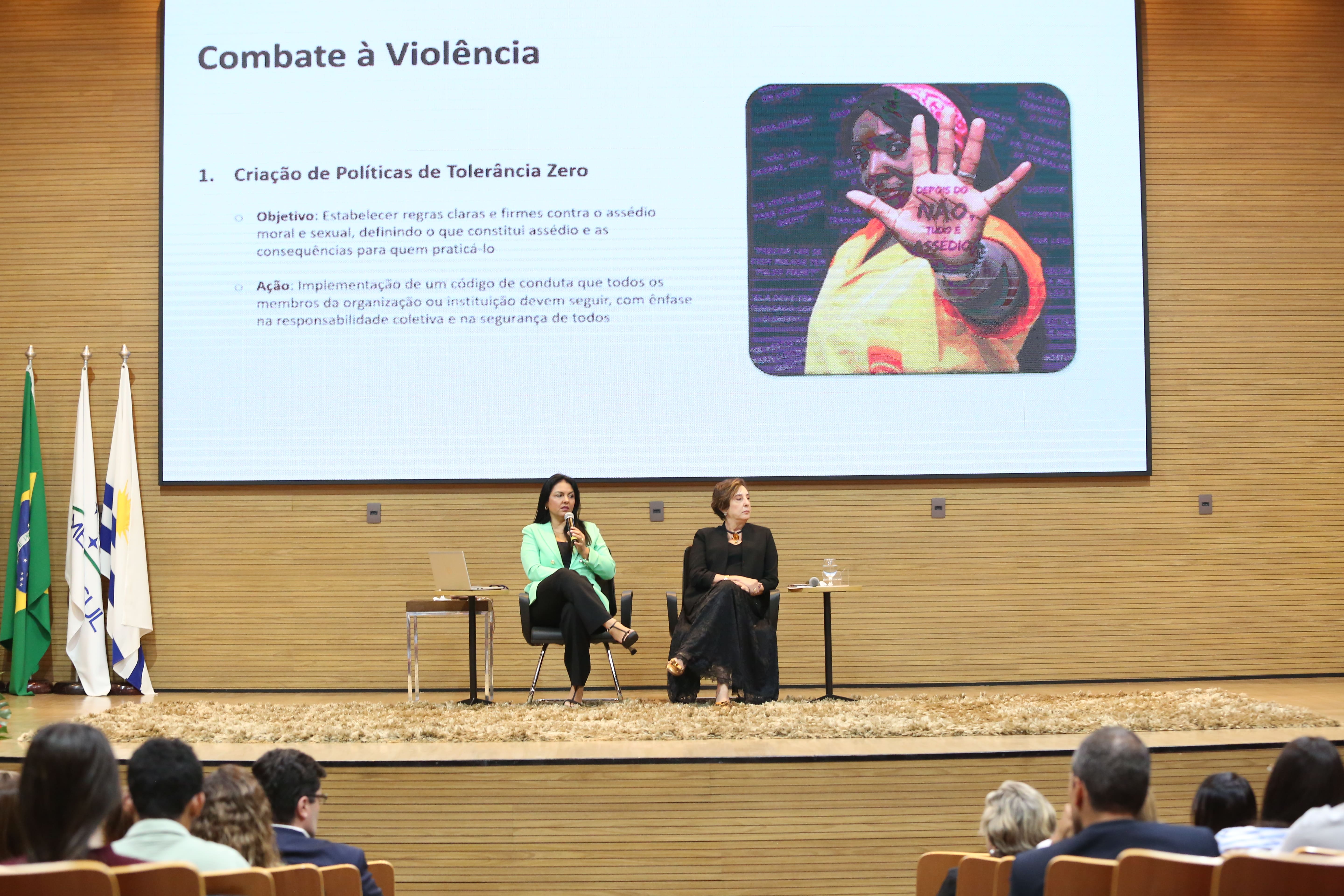
With an eye on institutional relations and the well-being of those who build Justice every day, the Judiciary of the state of Tocantins opened the IV Week to Combat Harassment and Discrimination on Monday (May 5th). The opening ceremony was held in the auditorium of the Court of Justice of the State of Tocantins (TJTO), with a live broadcast on the platform of the Superior School of the Judges of the State of Tocantins (Esmat).
At the opening ceremony, Justice Ângela Issa Haonat, president of the Commission for Preventing and Confronting Moral Harassment, Sexual Harassment and Discrimination of the TJTO, reiterated the ongoing nature of the actions of the Commission and the role of each institutional agent in building safe and dignified workspaces.
“Our aim this week is to create spaces for welcome, awareness and dialog. Harassment and discrimination are still often silenced, naturalized or ignored. And that's precisely why we need to face them with courage, based on qualified information and concrete data,” she said.
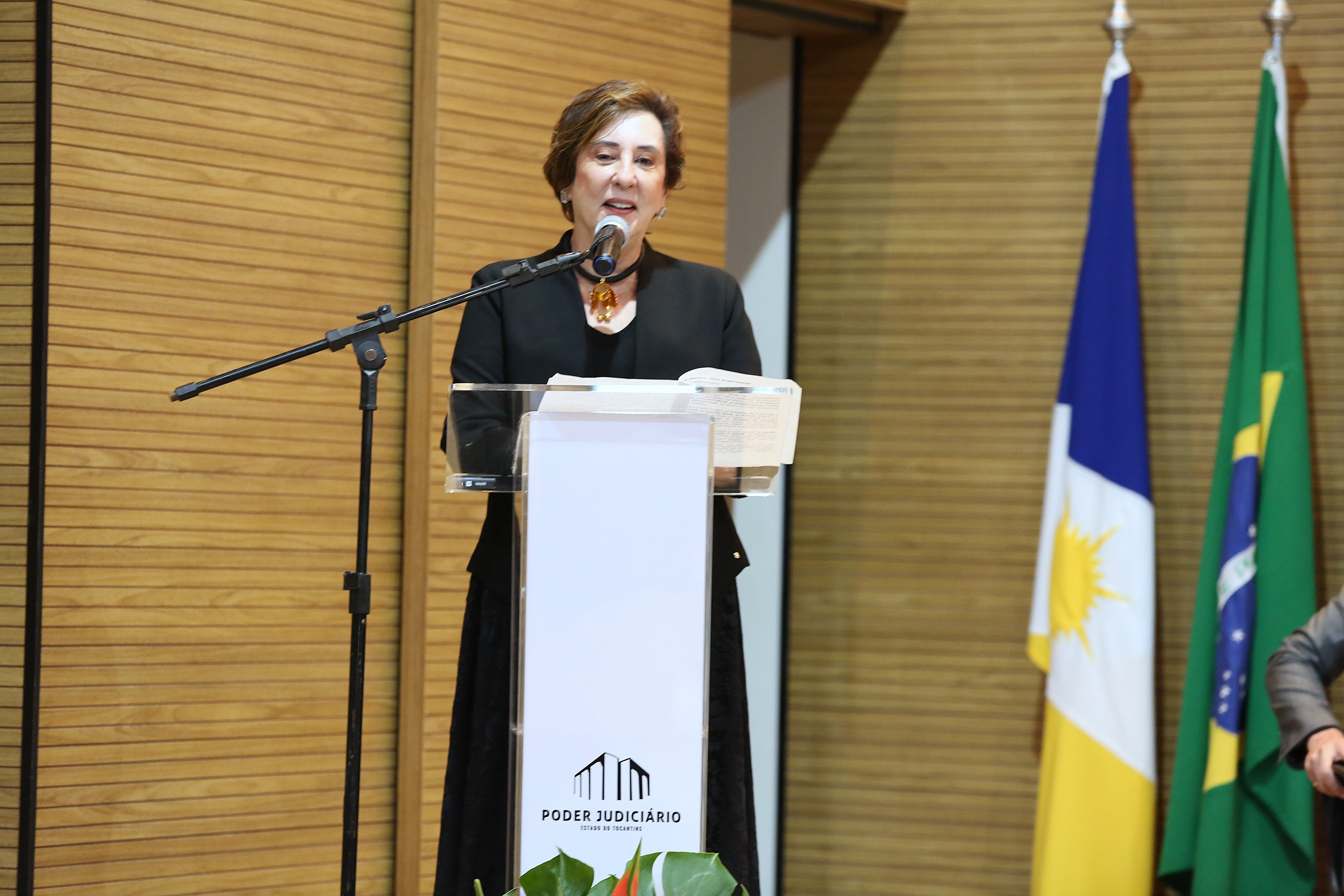 The magistrate also stressed that facing these practices is not limited to the individual sphere, but it requires a collective and institutional commitment. “These practices compromise not only individual well-being, but also weaken the organizational environment, undermine trust and erode the principles that support Justice. Combating them is the duty of all of us: judges, civil servers, managers, leaders, partners and citizens,” she added.
The magistrate also stressed that facing these practices is not limited to the individual sphere, but it requires a collective and institutional commitment. “These practices compromise not only individual well-being, but also weaken the organizational environment, undermine trust and erode the principles that support Justice. Combating them is the duty of all of us: judges, civil servers, managers, leaders, partners and citizens,” she added.
The president of the Court, Justice Maysa Vendramini Rosal, then stressed that institutional transformation begins internally, with attentive listening, respect for differences and ethical action in public management.
““In order to have the Justice we want to provide to society, we first need to see Justice happening here, in the reality of each server. Only in this way we will achieve the desired union and fulfill the mission of guaranteeing citizenship with a swift, safe and effective justice,” she said.
 The president also added that facing institutional violence is a non-negotiable commitment. “This Court does not condone inequality or exclusion. We remain vigilant and active, with dialog, training and active listening,” she said.
The president also added that facing institutional violence is a non-negotiable commitment. “This Court does not condone inequality or exclusion. We remain vigilant and active, with dialog, training and active listening,” she said.
Report
After the speeches, Maria Clara Rezende, secretary of the Commission, presented the report of the institutional survey carried out in April this year. The survey gathered the perceptions of magistrates and civil servers about harassment and discrimination in the workplace, providing relevant data for improving internal policies and strengthening the culture of respect in the Judiciary of the state of Tocantins.
The data presented helped to size up what many of the speakers had already clearly signaled. There are still significant obstacles to victims of harassment and discrimination feeling safe in formalizing complaints. Fear of reprisals, the perception of impunity and a lack of confidence in the effectiveness of institutional channels emerged among the responses.
Lecture
The evening programming continued with the lecture on “Moral and Sexual Harassment and Discrimination”, given by Justice Tânia Regina Silva Reckziegel, president of the College of Judicial Ombudsmen for Women and the first national Ombudsman for Women at the National Council of Justice (CNJ).
With a renowned path in defending the rights of women and combating institutional violence, the magistrate brought to the hearing sensitive and objective reflections on the challenges and possibilities for action in the fight against harassment.
Responsible for reporting on the Resolution 351 of 2020 within the CNJ, Tânia led her speech by recounting the historical journey that culminated in the creation of the national policy to combat harassment and discrimination in the judiciary.
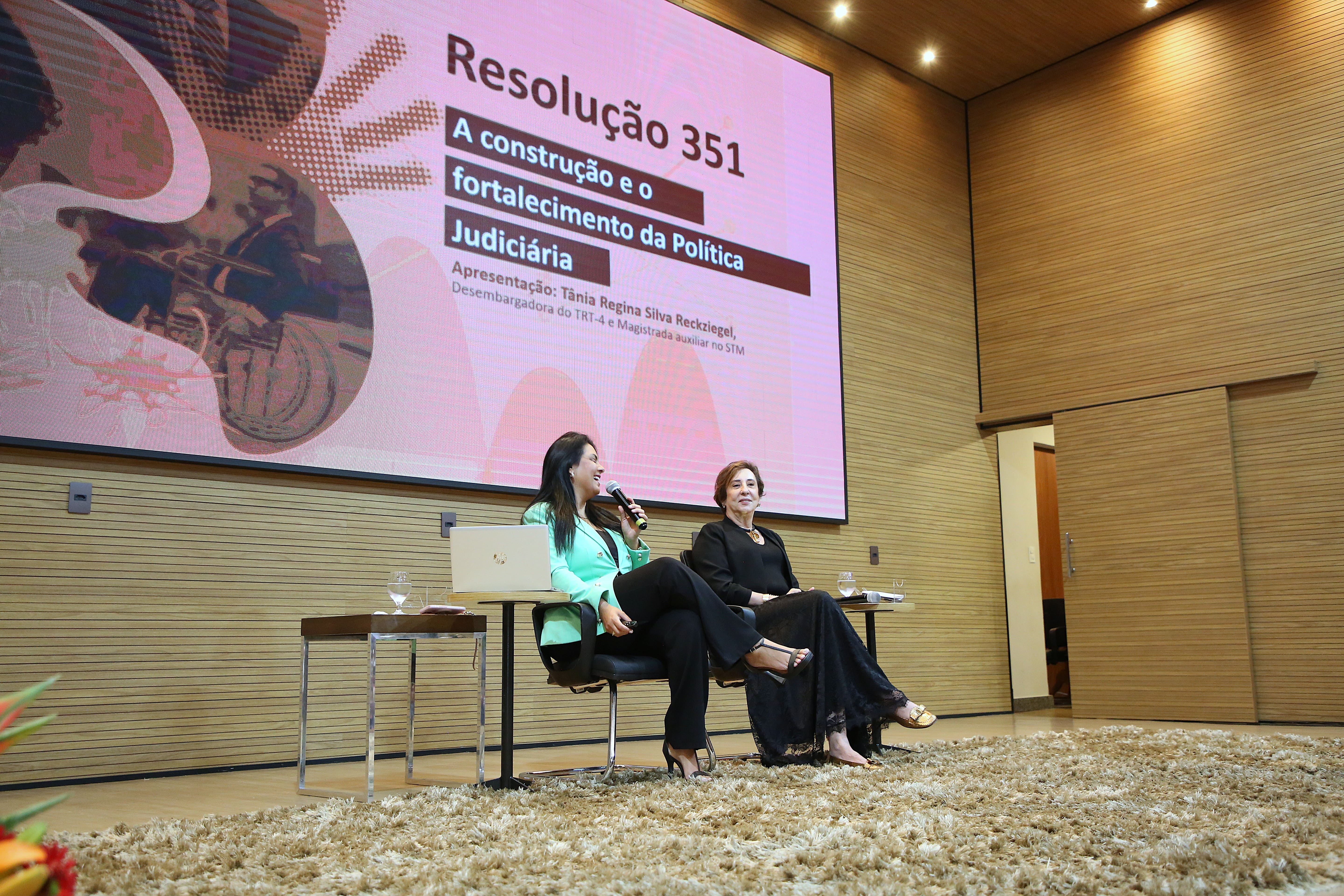
“The creation of these policies is an obligation of the judiciary. We cannot allow those who judge harassment cases to live with harassment within the institution itself,” she said.
The magistrate contextualized the work of the CNJ from her experience as national ombudsman, highlighting the role of other women who contributed to the construction and monitoring of the norm. She mentioned names such as Simone de Beauvoir, Angela Davis and Rita Segato, connecting institutional progress to the historical struggles for equality.
In her presentation, she detailed the different types of harassment, moral, sexual, institutional, racial, virtual and stalking, and stressed that, beyond legal classifications, sensitivity is needed to recognize the pain of others.
“What hurts me may not hurt you, but it needs to be respected,” she said.
She also warned about the serious and often invisible effects of these practices. “A person who is unhappy at work can't produce, can't deliver their best, and this affects Justice as a whole,” she added.
Advocating the strengthening of preventive actions, such as codes of conduct, anonymous reporting channels and ongoing training, the speaker reiterated that the Judiciary needs to assume the role of ethical reference within its own structures.
Programming continuous throughout the week
The IV Week to Combat Harassment and Discrimination continues until Friday (May 9th), with face-to-face and hybrid activities in the countryside and in the capital:
- May 6th – Gurupi: Round of conversation – “How to identify and overcome harassment in the workplace?”
- May 7th – Palmas: Cinedebate with the documentary: (In)Visible Pain
- May 8th – Araguaína: Round of conversation on the same theme, bringing together local authorities
- May 9th – Palmas: Visits by the Commission to units of the Judiciary
The Week is being promoted by the Commission for Preventing and Confronting Bullying, Sexual Harassment and Discrimination, with the support of Esmat, and it is aligned with two important milestones within the Judiciary. The first is the Resolution 351 of the National Council of Justice (CNJ) of 2020, which establishes the National Policy for Preventing and Combating Harassment and Discrimination in all courts in the country. The second is the Normative Instruction 103 of 2024, which guides the use of simple and accessible language in institutional events and communications.
If you want to delve deeper into the topic or review the arguments of the speaker, the recording of the lecture is available below. This content is well worth watching, especially for those who believe that change starts at home.










